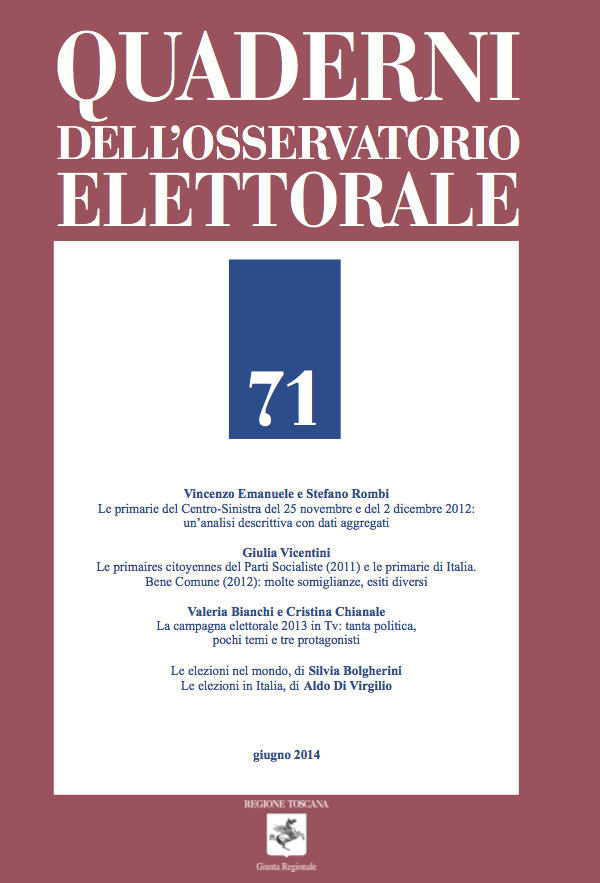Le primaires citoyennes del Parti Socialiste (2011) e le primarie di Italia. Bene comune (2012): molte somiglianze, esiti diversi
Published 2014-06-30
How to Cite
Abstract
This article contributes to the debate concerning primary elections’ efficiency (namely their capacity to select candidates who can be competitive in the general election) by comparing two cases of primaries leading to opposite electoral outcomes. In May 2012, a few months after the success in the so-called primaires citoyennes promoted by the French Socialist Party and its allies, François Hollande attains the Presidency of the Republic calling a halt to seventeen years of centre-right domination in France. Just one year later the winner of the centre-left Italian primaries Pierluigi Bersani failed in obtaining an absolute majority of seats in the February 2013 elections. The aim of the article is to try to understand to what extent the different electoral performance of Hollande and Bersani in the presidential and parliamentary elections can be explained by the different characteristics of the primaries they faced. The two cases have been compared on the basis of four key variables: inclusiveness, divisiveness, electability of the winning candidate and party elite predilection for the candidates in the race. The results suggest a substantial overlap between the French and Italian primaries: both were really inclusive but not particularly divisive, while they did not favour the success of a candidate unwelcome by the party elite. Accordingly I come to the conclusion that the negative result of the Italian elections is to be sought in factors unrelated to the primaries. In fact Hollande and Bersani partially diverged in terms of electability, but we cannot conclude that the French and Italian selectorates adopted different voting criteria for their appointment, as in both cases pragmatism seems to have prevailed over ideological considerations.

